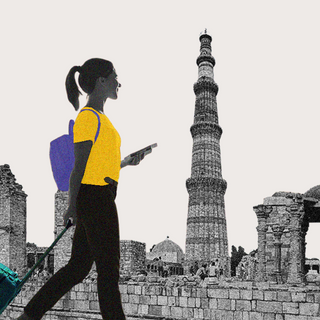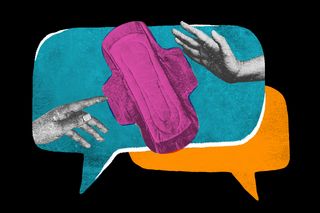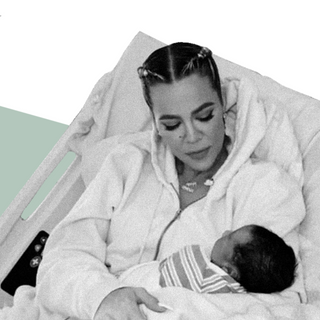
In Conversation: On the Official Who Dismissed a Girl’s Request for Free Sanitary Pads
The team discusses pressing events that say something about our culture, and why it matters. Today, why sexual health still elicits moral anxiety.

The team discusses pressing events that say something about our culture, and why it matters. Today, we talk about the social anxiety around sanitary pads and condoms.
Harjot Kaur Bamhrah, an IAS officer who serves as the chairman and managing director of Bihar’s Women and Child Development Corporation, was seen rebuking a girl who asked why the government can’t provide free access to sanitary napkins. “Tomorrow, you would expect [the] government to provide Nirodh (condom) too,” the officer said, in the recently-surfaced video.
Besides countries like Scotland and New Zealand, even the Indian state of Tripura has set up programs to provide free pads to menstruating students. The Swaddle’s editorial team talks about the ignorance among bureaucracy around women’s health, the glaring problem of period poverty, and why sexual health still elicits moral anxiety.
RN: Menstrual health and sexual health are both public health. Indian Administrative Service officers are public servants. A core part of their duty remains to frame policies and administer government programs as per the needs of the public. When this particular officer brazenly challenged a young student for merely holding a government official accountable, she not only failed in her own duty but also actively attacked a citizen exercising their right.
There’s something particularly unsavory about the line of questioning the official posed when a young girl asked for sanitary pads: the officer asked if she would like jeans next, then good shoes, then condoms. These are not innocuous questions: jeans and heels in particular have a sexual undertone in parts of India; they’re the ultimate sign of “loose” women whose autonomy does not become them. Women have been killed for wearing jeans as recently as 2021. The insinuation about condoms seals the insult that the official intended: by merely speaking about something as taboo as menstruation, the girl ostensibly invited comments that sexualize and, in the process, humiliate her.
The official, ironically, is the managing director of a body that’s charged with framing welfare schemes for women.
SK: What’s common between sanitary pads and condoms? Both are critical to women’s reproductive and sexual health. Access to both is impaired for women in middle- and low-income countries, where period poverty thrives in most parts. There are a lot of alarming stats, but the one that echoes the urgency most starkly is one in five menstruating people drop out of school due to a lack of access to sanitary pads – an essential product that the IAS officer seems to have callously overlooked.
But there’s something particularly sinister about speaking of condoms as if it’s an acrimonious ask. How dare young women educate themselves and advocate for their sexual health, and expect the public healthcare system to be inclusive and responsive to their needs? The indictment doesn’t fall on one government official in particular, but a larger cultural anxiety around sexual and menstrual health. While women bear much of the burden around family planning in India, conversations around safe sex or contraception among women are rarely state-led. It shifts the burden from public healthcare to devote significant energy toward sensitizing women, and even providing these essential utilities to a demographic whose health has been systemically overlooked.
To the official’s questions of if the girls want condoms, too, the answer is: well, yes, they do.
AS: What’s rather terrifying – and somehow even amusing – is the officer’s question on whether people base their votes on suvidhaayein (amenities). What else would a person vote for if not for their basic amenities? The fact that this question is coming from a bureaucrat is even more jarring. What is the point of clearing an examination that thoroughly interrogates you on the country’s political and social systems if you cannot even tell why people vote?
The officer’s question hints at a disconnect that exists between the bureaucratic class and the citizenry that they have been appointed to serve. I do not understand how a government official can even suggest that the government should not make basic amenities affordable and readily available to those in need of them, while enjoying free housing, transportation, and the service of state-appointed domestic workers. The idea that people in need must “earn” their way to the most basic things to live a decent life is just bizarre – and, of course, devoid of any self-awareness.
Related


How a Photo of Khloé Kardashian Reignited Debate on Motherhood, Surrogacy, and Global Inequality
